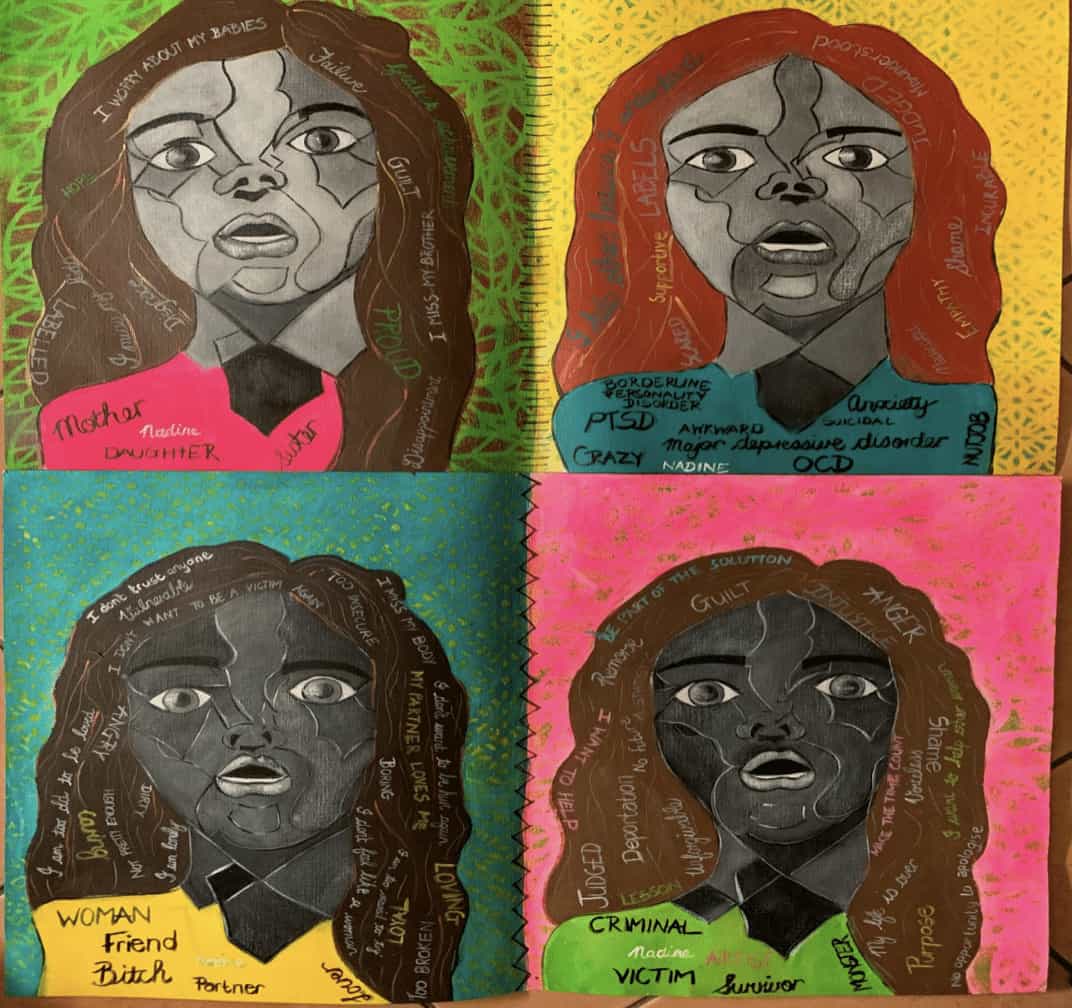Social Science Research Highlight: Art Therapy in Prison Ministries
Art Therapy in Prison Ministries and Correctional Services
“I was a prisoner. It was my art skills that helped my rehabilitation.”
More than twenty years on, Sarah Tucker has turned her life experience into a life-changing research project at Christian Heritage College (CHC) that is already having an impact on prisoner rehabilitation.
With Australian prison rates steadily increasing each year at a rate of 1%, Ms Tucker’s research work has garnered broad support for facilitating the reintegration of inmates back into society post-release.
As a student in the Master of Social Science Leadership program, her research draws on her Bachelor of Visual Arts, her rich experience as an artist, and her personal and professional prison ministry background, which she has converted into an influential art therapy program for inmates. Art therapy sessions are offered weekly in conjunction with Uniting Care Prison Ministry.
During the literature review for her research thesis she discovered just how unique her study really is. She said: “I have yet to find similar research within Australian prisons that is contextually aligned with the Australian convict history and culture.”
After four rounds of piloting her art therapy program in two Queensland prisons, some notable results have been achieved:
- Inmates have grown in self-confidence through self-awareness and accountability
- Engagement with art has reduced involvement in violence and prison drug culture
- Some inmates have discovered art as a tool they can share with their own family members and children, thus assisting them with re-connection
- Art therapy has resulted in changing habitual behaviours and has strengthened cognition especially for inmates with lower levels of education
As Ms Tucker continues her research, her aim is to have artwork acknowledged by Parole and Probation as a vital tool for communication. She said: “Art therapy can assist illiterate inmates with their community corrections applications. It holds much promise. Already my research suggests that art therapy can reduce recidivism. Public awareness should shift from viewing it as a privilege, to applying it more widely as an essential component in rehabilitation.”
Ms Tucker is proud to be presenting her research at the 9th International Conference on Crime and Justice in Melbourne (November 2019; program). Having already won Student Best Paper Award for her research presentation at the recent Australian Christian Higher Education Alliance (ACHEA) Research Conference (31/7-2/8/2019) in Brisbane, Sarah excitedly looks ahead to what’s next. She said: “This is my passion. I’m so grateful to see this dream come true.” Meanwhile she is continuing to advocate that Corrections use art therapy in conjunction with current trauma recovery programs.

Having just realised her first peer reviewed academic publication, Ms Tucker is currently completing her empirical research thesis entitled “Contemporary art therapy in Queensland prisons” under the supervision of Dr. Johannes Luetz, who coordinates the Social Science Postgraduate Program.
Ms Tucker is proud to be a published author. She said: “I am glad that my research is bringing hope and meaningfulness to prisoners who are locked away and forgotten by society.”
Ms Tucker is supported by Uniting Care Prison Ministry, where she is a casual employee.
The School of Social Sciences is proud to have a stake in Ms Tucker’s research and heartily congratulates her on her success as a practitioner and published author!
Her peer reviewed publication is available online and in print from academic publisher Springer:
Tucker, S., & Luetz, J.M. (2021). Art Therapy and Prison Chaplaincy: A Review of Contemporary Practices Considering New Testament Teachings, In J.M. Luetz & B. Green (Eds.), Innovating Christian Education Research: Multidisciplinary Perspectives (pp. 239–269). Springer Nature, Singapore. https://doi.org/10.1007/978-981-15-8856-3_15
Acrylic self-portraits by inmate working on identity awareness. From Ms Tucker’s art therapy program. Reproduced with permission from the incarcerated artist.

